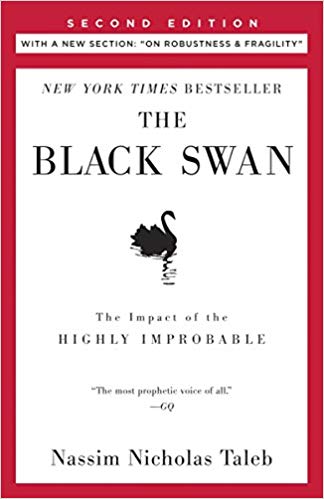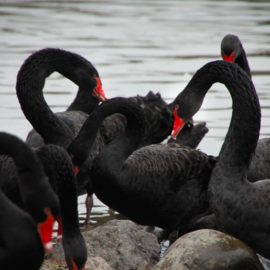

This article is an excerpt from the Shortform summary of "The Black Swan" by Nassim Taleb. Shortform has the world's best summaries of books you should be reading.
Like this article? Sign up for a free trial here .
What is falsification? Why is looking for ways to disprove our own theories productive?
Falsification is the act of looking for evidence that disproves a scientific theory. The idea was introduced by philosopher of science Karl Popper.
We’ll cover why falsification is necessary for unbiased science.
Falsification and the Scientific Grounds for Uncertainty
In the process of falsification, we actively look for evidence that disproves a scientific theory. Why? Falsification counters our natural tendency to see only that evidence that confirms our beliefs.
The Error of Confirmation
All too often we draw universal conclusions from a particular set of facts. For example, if we were presented with evidence that showed a turkey had been fed and housed for 1,000 straight days, we would likely predict the same for day 1,001 and for day 1,100.
Taleb calls this prediction the “round-trip fallacy.” When we commit the round-trip fallacy, we assume that “no evidence of x”—where x is any event or phenomenon—is the same as “evidence of no x.” But if we had practiced falsification and looked for “evidence of no x,” we may have seen that these aren’t the same.
Picture a turkey cared for by humans. It has been fed every day for its entire life by the same humans, and so it has come to believe the world works in a certain, predictable, and advantageous way. And it does…until the day before Thanksgiving.
Made famous by British philosopher Bertrand Russell (though, in his telling, the unlucky bird was a chicken), this story illustrates the problem with inductive reasoning (the derivation of general rules from specific instances). With certain phenomena—marketing strategy, stock prices, record sales—a pattern in the past is no guarantee of a pattern in the future.
In Taleb’s words, the turkey was a sucker—it had full faith that the events of the past accurately indicated the future. Instead, it was hit with a Black Swan, an event that completely upends the pattern of the past. (It’s worth noting that the problem of inductive reasoning is the problem of Black Swans: Black Swans are possible because we lend too much weight to past experience.) Past experience confirms our beliefs; falsification shows us that the past can’t predict the future.
Another example of faulty inductive reasoning, this time from the world of finance, concerns the hedge fund Amaranth (ironically named after a flower that’s “immortal”), which incurred one of the steepest losses in trading history: $7 billion in less than a week. Just days before the company went into tailspin, Amaranth had reminded its investors that the firm employed twelve risk managers to keep losses to a minimum. The problem was that these risk managers—or suckers—based their models on the market’s past performance. Again, they weren’t looking for the problems, the evidence against their success. They didn’t practice falsification.
In the turkey illustration, we might assume that “no evidence of the possibility of slaughter” equals “evidence of the impossibility of slaughter.” To take a medical example, if a cancer screening comes back negative, there is “no evidence of cancer,” not “evidence of no cancer” (because the scan isn’t perfect and could have missed something).
In addition to drawing broad conclusions from narrow observations, we also have a tendency to select evidence on the basis of preconceived frameworks, biases, or hypotheses. For example, a scientist conducting an experiment may, often unconsciously, discount evidence that disconfirms her hypothesis in favor of the evidence that confirms it. It’s more commonly known as “confirmation bias.” This is the opposite of falsification.
Taleb’s solution to naive empiricism/confirmation bias is negative empiricism—the rigorous search for disconfirming, rather than corroborating, evidence. This technique was pioneered by a philosopher of science named Karl Popper, who called it “falsification.” The reason negative empiricism/falsification is so effective is that we can be far more sure of wrong answers than right ones.
———End of Preview———

Like what you just read? Read the rest of the world's best summary of "Black Swan" at Shortform . Learn the book's critical concepts in 20 minutes or less .
Here's what you'll find in our full Black Swan summary :
- Why world-changing events are unpredictable, and how to deal with them
- Why you can't trust experts, especially the confident ones
- The best investment strategy to take advantage of black swants






